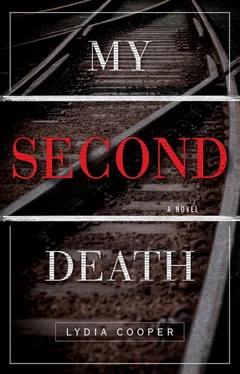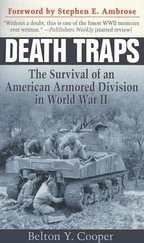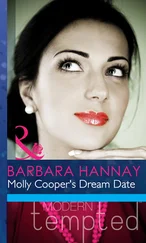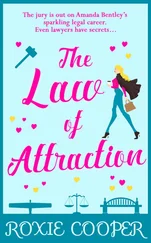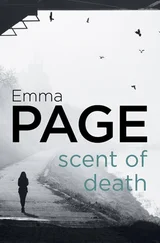He leans back and breaths through his nose. His papery eyelids slide down.
I sit and we listen to violins chirruping, trumpets caroling. Silhouettes pass to and fro behind the warmly lit living room curtains, the picture window acting like a shadowbox in the night. We are voyeurs of civilization.
I could tell him that Dave is almost as fucked up as I am. I chew my lower lip. The coppery taste of blood in my mouth. I wipe my sleeve over my mouth and frown and wonder if I live a life strung precariously between self-inflicted pain and the word fuck.
“Every time I see you,” he says, and I look over at him in surprise. “Every time I look out my office window and see you crossing campus, or when I — when I walk by your classroom when you’re teaching—”
I squint, stunned that he knows my teaching schedule, let alone that he has ever ventured forth from his aerie to seek me in my den of graduate student iniquity.
“—When Bob Telushkin or, or any of the other faculty talk about you — and by God, they talk about you — when I see you at the dinner table—”
White curds of dry spit cling to the corners of his mouth. He stops talking and wipes his thumb and forefinger across the edges of his lips.
I swallow.
He spreads his hand against the wheel. “Of all my children,” he says, and his voice has the hushed and tremulous quality of a choirboy in the confessional, “when I look at you, I see the worst parts of me, my pride, my inability to say the words, the words I need to say to the people I wish, the people I wish that I could love. I see my lack of, of kindness. I see my hauteur, my intellect thrown up like a bulwark against laughter, humility, pain. You have so flamboyantly perfected my own weaknesses. That’s what it is, what is so terrible about you. Do you know what it is? Your perfection. Your mother told me something tonight.”
He waits but I don’t say anything.
“She told me that I should say something to you. As if I could fix you. As if because of our shared — personality flaws, as if perhaps you would — listen to me.”
I laugh. The sound is harsh.
He flinches and the loose skin over his neck contracts as he swallows. “But how can I,” he says to his hands pressed against the steering wheel. “How could she think that I — how can I fix you? I — God help me — I love you the way you are. What a terrible cliché. And so inadequate. I hate being around you and I miss you, I miss you every day now that you’re not living at home.”
I look out the window again at the snow-grayed ground, the pitch-dark sky. Neither of my parents knows much about Dave’s manic behavior, sexual exploits, midnight calls to Stephen asking for money. They don’t know that I make a conscious decision every morning not to take a knife to the university and peel the skin off the faces of the assholes in my office. That the decision drives me running down miles of road until my energy is spent on something other than mutilation. They fear us, they are ashamed of us, and they love us in almost equal measure, but they don’t know anything about us. We are two creatures they made together but whose genetic material is more diseased than any ingredient used in our making. We are their Abel and Cain, the flawed, weak and murderous, the wasted flesh. Stephen is their Seth, and like the biblical Seth, he remains largely overlooked but will be, if anyone is, their salvation.
“You’re not like me,” I say. “I mean, you’re a total bastard to Mom sometimes, but overall you’re decent. Moral. You’re nothing like me.”
“I don’t need to hear this.” His voice sounds thin, flat, exhaustion stripping all tonal variation.
“And besides, it’s a little creepy that you watch my class.”
He doesn’t say anything. When I look over at him, his eyes are closed again and his hands rest on his lap.
“You deserve better than me.”
He says without opening his eyes, “If I deserved better than you, Michaela, I would have better. Parents deserve the children they raise.”
“No one deserves us.”
His cheek twitches. He opens his eyes but does not turn his head. His lips press together. He has heard the plural pronoun.
More to distract him from contemplation of the word than for any conscious reason, I hear myself say, “I thought I died. Remember when I had that seizure? I totally thought I had died and come back to life for, like, I don’t know, a couple weeks at least.” I smile and look at the vague eyeless reflection in the windowpane. “I used to believe in that shit, in reincarnation, or baptism, the resurrection of the damned into new life. I wanted to change so much. God, if I could change, I would. I don’t fucking want to be like this. Every morning I lie in bed and pretend that this is the day, that I’m going to wake up normal. And the first thing I always imagine doing is giving Mom a hug. Always. I don’t know why it’s her, but it is. And I imagine that I’m, you know, hugging her, and I look over and there you are smiling at me, and, I don’t know, proud of me and shit. It’s the stupidest fucking thing to think about and I do it every day.”
His head turns slowly, ponderously, toward me.
The loose skin by his mouth folds back as his lips part. His teeth are yellowed from years of coffee and illicit cigars. He looks both strange and familiar, an expression dawning on his face until his eyes, the wrinkles, the darkness in them, a hope-lit wasteland, a darkling paradise, looks like the photographic negative of my own face.
I shut my eyes briefly.
When I open them, the world has not imploded in the frenzied glory of Armageddon.
My palms leave damp prints on the car door handle when I press it open and climb out. The night air bites at my lungs.
We drive home the next day. I sit with the side of my face pressed against the cold window glass until we arrive back in Akron, Ohio.
“Are you going to stay here tonight?”
I look at my mom. She is trying not to sound happy or sad. I don’t know which emotion she is feeling.
“No.”
“But, well, okay but just — just be sure and lock your doors. I don’t like you being alone in that neighborhood.”
“It’s okay.”
“No, it’s not.” She sounds frustrated. She looks over at my father, but he’s already asleep on the sofa, the newspaper layered like crushed moth wings over his chest. “When will Aidan get back?”
“I don’t know,” I say. “I’m not his babysitter. Oddly enough.”
My mother doesn’t think that’s funny.
Rain falls in gentle gusts, pockmarks the dirty snow lying piled against curbs. Lamplight glistens yellowish against the icy surface of the snowbanks and the slick streets. I duck my head against a sleeting rain that stings my face and neck and jog up the stairs. They thud hollowly under me. I open the door and the apartment is warm and light.
A metal folding chair sits in the middle of the kitchen, facing an easel with a stretched canvas on it. On the counter behind the easel are a half-eaten apple, a can opener, a soup can, and a bottle of milk arranged on an upturned Reiter’s dairy crate. My broken reading lamp has been removed from my room and it sits behind the dairy crate casting strange shadows, dark and downward slanted, across the fruit and kitchen utensils.
A toilet flushes and then Aidan comes into the kitchen. He stops when he sees me.
“Hey. You’re back.”
I don’t say that the same is obviously true of him. He smiles a little, distracted but like he’s happy to see me, and doesn’t say anything about the stuff in the kitchen or the fact that he has stolen my lamp. He is carrying a yellow phone directory, and he pulls a pocketknife out of his pants pockets and flicks the blade open. He rips the blade through the phonebook’s spine with a clean, practiced slice. Loose translucent newsprint pages flutter free. He folds up the knife blade against his thigh and puts it back in his pocket. Then he squirts globs of paint on one flat section of the phonebook. With a Popsicle stick he drips paint thinner onto the globs of paint and swirls them together.
Читать дальше
